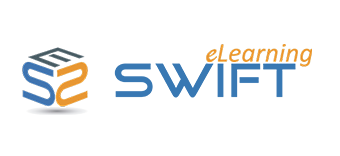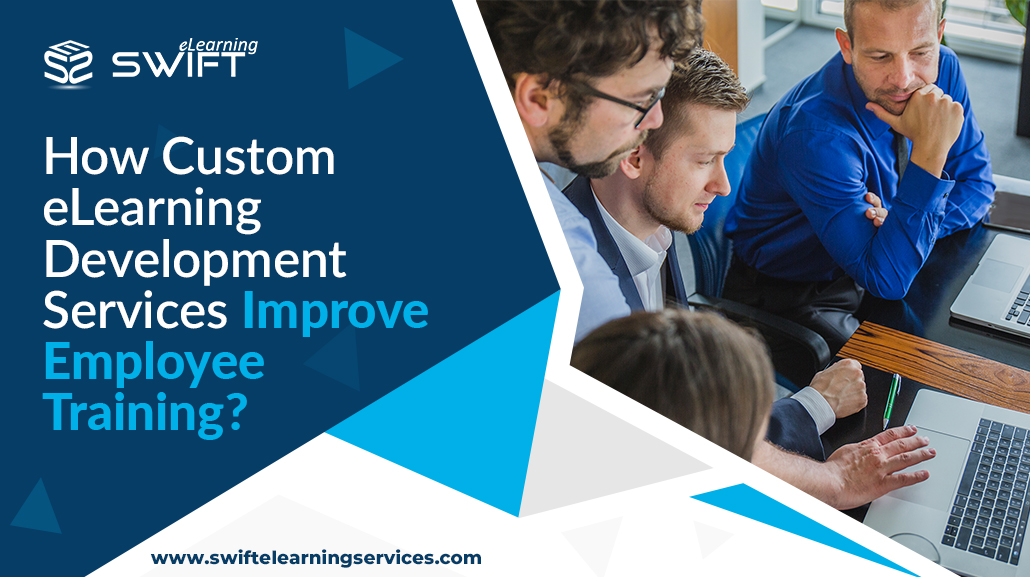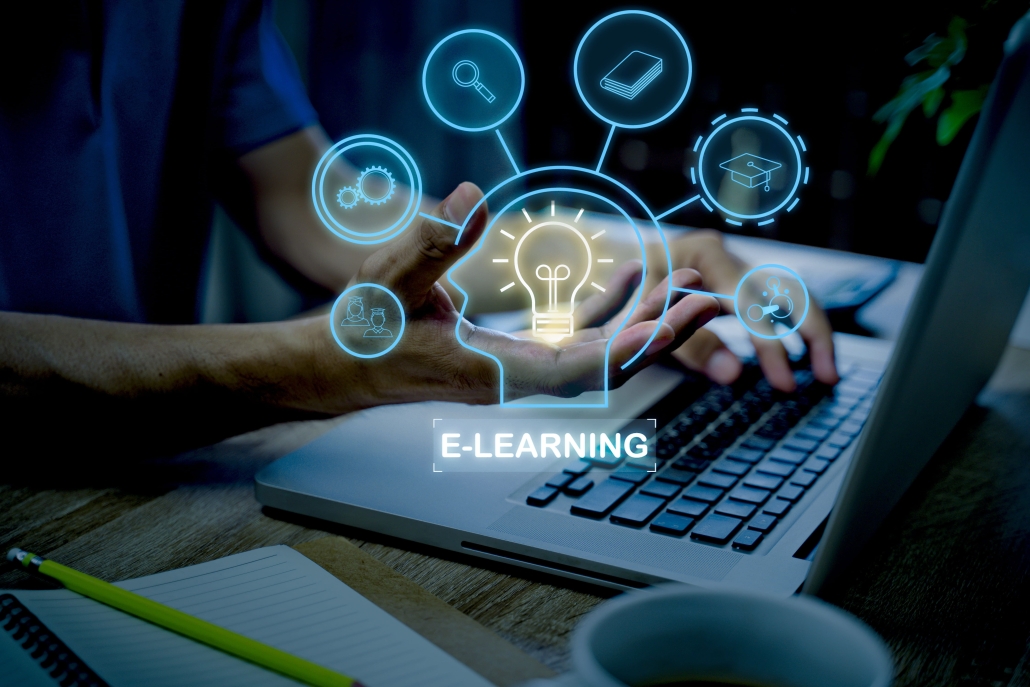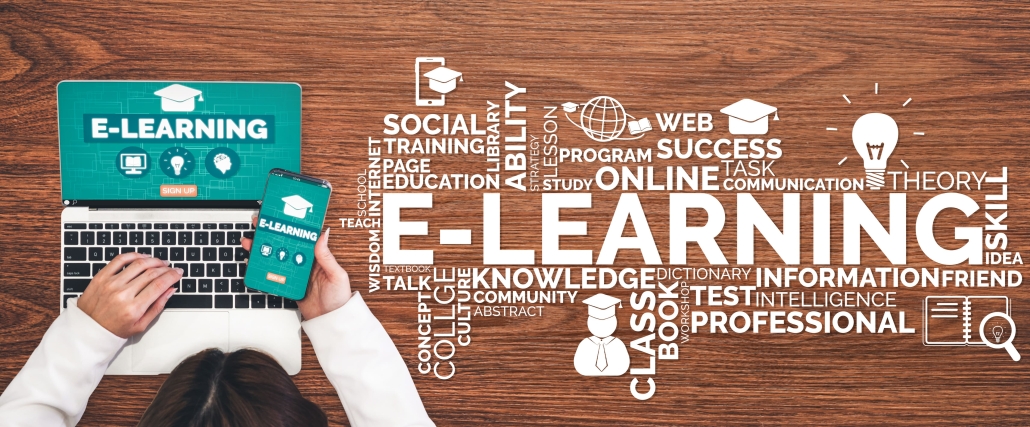How Custom eLearning Development Services Improve Employee Training?
Custom eLearning Development Services Improve Employee Training – Introduction
Discover how custom eLearning development services improve employee training. Personalized learning experiences, flexibility, interactive content, cost-effectiveness, and real-time performance tracking are just a few of the benefits. Gain a competitive edge with custom eLearning.
In today’s rapidly evolving business landscape, employee training plays a pivotal role in ensuring organizational success. As technology continues to advance, custom eLearning development services have emerged as a powerful tool for enhancing the effectiveness of employee training programs.
This article explores the numerous ways in which custom eLearning development services can significantly improve employee training outcomes, providing businesses with a competitive edge in their respective industries.
2. Understanding Custom eLearning Development
Custom eLearning development refers to the creation of personalized and tailored digital learning experiences for organizations. It involves the design, development, and implementation of online training modules and courses that are specifically crafted to meet the unique needs and objectives of a particular organization or industry.
Unlike off-the-shelf eLearning solutions, custom eLearning development takes into account the specific requirements, goals, and target audience of an organization. It aims to deliver training content that is highly relevant, engaging, and aligned with the organization’s culture, processes, and learning objectives.
Custom eLearning development involves a collaborative effort between instructional designers, subject matter experts, multimedia specialists, and developers. These professionals work together to create interactive and visually appealing eLearning modules that incorporate various multimedia elements, such as videos, simulations, quizzes, and interactive activities. The content is structured and presented in a way that promotes active learning, knowledge retention, and practical application.
3. How Custom eLearning Development Services Revolutionize Training
Custom eLearning development services offer tailored solutions that are specifically designed to address the unique training needs of organizations. By utilizing cutting-edge technologies and innovative instructional design strategies, these services can revolutionize the way employees acquire knowledge and develop new skills. Let’s delve into the key benefits and advantages of leveraging custom eLearning development services for employee training.
3.1 Personalized Learning Experience
Custom eLearning development services enable organizations to create personalized learning experiences for their employees. By identifying individual learning styles, preferences, and skill gaps, these services can deliver targeted training content that caters to the specific needs of each employee. This personalized approach fosters greater engagement and motivation among learners, leading to improved knowledge retention and application in real-world scenarios.
3.2 Flexibility and Accessibility
One of the significant advantages of custom eLearning development services is the flexibility and accessibility they offer. Employees can access training materials anytime, anywhere, and at their own pace, eliminating the constraints of time and location. This flexibility ensures that learning can be seamlessly integrated into employees’ busy schedules, allowing for uninterrupted productivity while acquiring new skills and knowledge.
3.3 Interactive and Engaging Content
Custom eLearning development services employ various multimedia elements, such as videos, animations, gamification, and interactive quizzes, to create engaging and immersive learning experiences. By incorporating interactive content, these services make the training process more enjoyable and memorable, resulting in enhanced learner participation and knowledge retention.
3.4 Cost-Effectiveness
Traditional training methods often incur significant costs associated with venue rentals, travel expenses, and printed materials. However, custom eLearning development services offer a cost-effective alternative by reducing or eliminating these expenses. With eLearning, organizations can deliver training programs remotely, eliminating the need for physical infrastructure and reducing overall training costs.
3.5 Real-time Performance Tracking and Analytics
Custom eLearning development services provide robust tracking and analytics capabilities that enable organizations to monitor the progress and performance of their employees in real-time. Through learning management systems (LMS), organizations can track completion rates, assessment scores, and identify areas where additional support or improvement is needed. This data-driven approach allows for targeted interventions, ensuring maximum effectiveness and efficiency in employee training.
3.6 Scalability and Standardization
Custom eLearning development services offer scalability and standardization across organizations of all sizes. Training content can be easily updated, modified, and replicated, ensuring consistency in knowledge delivery and maintaining compliance with industry standards and regulations. Additionally, as businesses expand, eLearning platforms can effortlessly accommodate the growing number of learners without compromising the quality of the training experience.
4. Custom eLearning Development Process: Building Effective Training Solutions
Custom eLearning development involves a systematic process that transforms training objectives into engaging and impactful learning experiences. By following a structured approach, organizations can ensure the creation of high-quality custom eLearning content that aligns with their unique needs. Let’s explore the key steps involved in the custom eLearning development process.
4.1 Analysis and Needs Assessment
The first step in the custom eLearning development process is conducting a thorough analysis and needs assessment. This stage involves understanding the organization’s training goals, identifying target audience characteristics, and determining the specific learning objectives. By gathering this information, instructional designers can tailor the content and instructional strategies to meet the learners’ needs effectively.
4.2 Content Planning and Design
Once the needs assessment is complete, the next step is content planning and design. This stage involves outlining the structure of the eLearning modules, determining the sequencing of topics, and organizing the content in a logical manner. Instructional designers collaborate with subject matter experts to ensure accuracy and relevance in the training materials.
4.3 Instructional Design and Storyboarding
Instructional design is a critical aspect of the custom eLearning development process. During this phase, instructional designers create a storyboard that outlines the visual and interactive elements of the eLearning modules. The storyboard serves as a blueprint for the development process, guiding the creation of engaging multimedia content, including text, images, videos, and interactive activities.
4.4 Content Development and Production
Once the storyboard is finalized, the content development and production phase begins. Instructional designers collaborate with multimedia specialists, graphic designers, and developers to bring the storyboard to life. They create visually appealing and interactive eLearning modules, incorporating multimedia elements to enhance learner engagement and comprehension.
4.5 Quality Assurance and Testing
Quality assurance and testing are crucial stages to ensure the effectiveness and functionality of the custom eLearning content. Testing involves checking for any technical glitches, verifying the accuracy of content, and conducting user testing to gather feedback and make necessary improvements. This iterative process helps in identifying and resolving any issues before the final deployment of the eLearning modules.
4.6 Deployment and Delivery
After the content has undergone rigorous quality assurance and testing, it is ready for deployment and delivery. The custom eLearning modules can be deployed through learning management systems (LMS) or other platforms that provide seamless access to learners. This stage involves setting up user accounts, tracking progress, and ensuring a user-friendly interface for easy navigation and engagement.
4.7 Evaluation and Continuous Improvement
The custom eLearning development process does not end with deployment. Evaluation and continuous improvement are integral components to gauge the effectiveness of the training program. Organizations can collect feedback from learners, analyze assessment results, and track performance metrics to measure the impact of the custom eLearning modules. Based on the evaluation findings, modifications and updates can be made to optimize the training program continually.
By following this comprehensive custom eLearning development process, organizations can create tailor-made training solutions that maximize learner engagement, knowledge retention, and skill acquisition. Custom eLearning development services provide the expertise and support needed to ensure the development of effective and impactful training solutions that improve employee performance and contribute to overall organizational success.
5. Conclusion – Custom eLearning Development Services Improve Employee Training
Custom eLearning development services have transformed employee training by offering personalized, flexible, and engaging learning experiences. From personalized content to real-time performance tracking, these services empower organizations to enhance employee knowledge, skills, and performance.
By embracing custom eLearning development services, businesses can optimize their training programs and achieve a competitive advantage in today’s dynamic marketplace.
6. FAQ’s About Custom eLearning Development Services Improve Employee Training
How does custom eLearning development differ from off-the-shelf eLearning solutions?
Custom eLearning development involves the creation of tailor-made training content that aligns precisely with an organization’s unique requirements. Off-the-shelf eLearning solutions, on the other hand, provide pre-packaged content that may not cater to specific needs. Custom eLearning development services offer flexibility, personalization, and greater control over the training process.
Can custom eLearning development services be integrated with existing learning management systems (LMS)?
Yes, custom eLearning development services can seamlessly integrate with existing learning management systems. These services are designed to be compatible with various LMS platforms, ensuring a smooth transition and efficient management of training programs.
How long does it take to develop custom eLearning content?
The development timeline for custom eLearning content depends on several factors, such as the complexity of the training program, the amount of multimedia elements involved, and the availability of learning resources. On average, the development process can range from a few weeks to a few months, considering the iterative nature of content creation, review, and refinement.
What types of industries can benefit from custom eLearning development services?
Custom eLearning development services can benefit a wide range of industries, including but not limited to healthcare, manufacturing, technology, retail, and finance. Regardless of the industry, any organization that seeks to enhance employee training outcomes and improve performance can leverage custom eLearning development services.
Can custom eLearning development services be used for compliance training?
Absolutely! Custom eLearning development services are ideal for compliance training. These services can create engaging and interactive compliance modules that ensure employees understand and adhere to industry regulations, reducing the risk of legal and financial implications for organizations.
What are the key elements of an effective custom eLearning program?
An effective custom eLearning program encompasses various elements, including clear learning objectives, interactive and engaging content, multimedia elements, assessments, performance tracking, and feedback mechanisms. These elements work together to create an immersive and impactful learning experience for employees.






